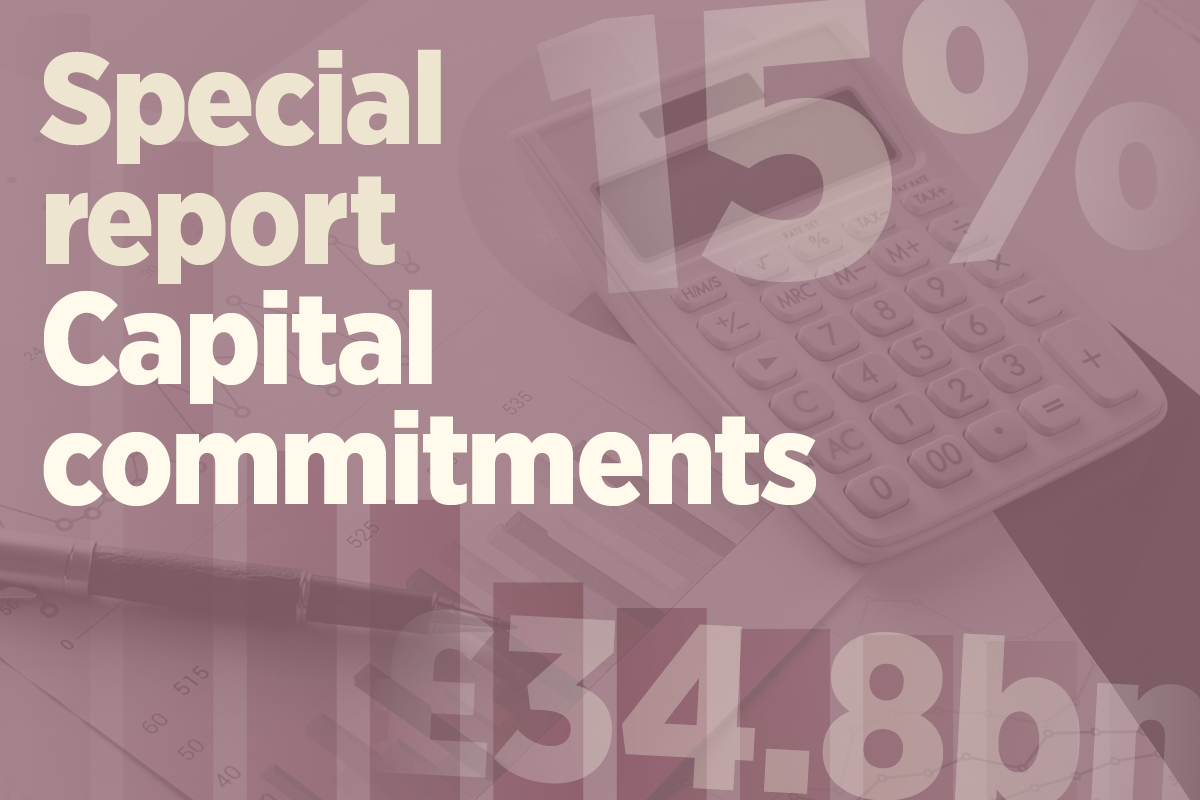Housing associations bolster financial positions to combat coronavirus threat
Mitigating a potential rise in arrears, providing additional services, upping cash reserves and taking a ‘wait and see’ approach on funding are all in the mix as social landlords brace for the impacts of coronavirus. Sarah Williams reports
Registered providers are reinforcing their financial plans as part of the focus on tenant and staff safety and business resilience in the face of the coronavirus outbreak.
While some providers say their action plans are evolving, others have told Social Housing that they are increasing liquidity positions or looking for opportunities to secure additional finance in the capital markets.
And while ‘business as usual’ continues on repairs and maintenance, organisations have said they could move to urgent or emergency-only services in the coming weeks.
Meanwhile, development programmes could be hit by short-term delays as supply chain and construction staff availability declines.
Social Housing has spoken to finance directors across the sector to see how they are responding and preparing for what prime minister Boris Johnson described as “the worst public health crisis for a generation”.
Bolstering liquidity positions
South East-based Optivo has increased its liquidity limits by 50 per cent, from a minimum of £50m to £75m, in response to the coronavirus threat.
It comes days after the 47,000-home provider said it was taking a “wait and see” approach to a prospective £250m bond issue.
Sarah Smith, chief financial officer at Optivo, said: “That’s not to say that we’re going to need [the increased liquidity] but the fact we’ve got that ability to do that shows actually we’re in a very strong position.”
Ms Smith said that Optivo’s existing stress-testing includes situations in which bad debts might significantly increase and what that would mean.
“Essentially in this scenario we could be at risk of arrears going up, maybe costs increasing and additional costs coming up where we need to react quickly.
“But we are in a very strong financial position, we’ve got very strong liquidity, and as always in situations like this, cash is king, so having that strong liquidity there is absolutely essential.
Waqar Ahmed, group finance director at L&Q, said: “Any additional financial resources will be deployed as and when needed.”
He said that these are “not expected to be material”, and that the organisation is therefore still in line with forecasts reported in the last trading results.
A spokesperson for the 100,000-home organisation, which was already refocusing its investment strategy towards existing homes in response to the safety agenda, has now also established a crisis response team and a “pandemic plan”. They said the health and safety of customers and colleagues is L&Q’s “top priority”.
“While prioritising safety, we want to ensure that our response is proportionate and minimises disruption.
“Because we run our own direct maintenance function we are well placed to quickly respond to the challenges presented by coronavirus as the situation develops.
“We already have tried and tested plans in place which are modelled on our response to winter periods where staff sickness and repairs demand tend to peak.”
This includes an approach to triaging requests so that emergency demand remains “well serviced”, and modelling a variety of scenarios including how to deliver emergency repairs “if they need to be carried out in a building where infection is present”.
Platform Housing Group in the Midlands has started to build up its cash reserves as part of business continuity planning, in case incoming payments stop or slow, chief executive Elizabeth Froude said.
The 44,000-home provider is also mapping out what a hardship fund for tenants might look like.
Ms Froude said that the situation is already starting to cost in financial terms, “from cancelling things, from extra cleaning, from health and safety type supplies and protective equipment”.
Postponements have included the organisation’s internal conference in May, and staff are being advised to minimise meetings or physical presence where not required.
Ms Froude added: “Our view is that we will have to spend what we have to spend to protect our staff and our customers as this goes on, and we’ve got not never-ending liquidity to do that but we’ve got the ability to tolerate it for quite a while, by which time I think it would be a much larger issue than for our organisation or for our sector.”
Ms Froude said that repairs services for now are running as a normal, but she added: “We’ve had to start thinking about what happens in a kind of Italy-type situation where we have to start locking down bits of our business or services that we provide.”
She said while there would be no impact to the funds invested in existing stock, delays and gaps in the supply chain could impact timings.
“[We may] find that actually the delivery of works when we get to the end of the year may have a four or six-month hole in it that means we are behind the curve on it, and it may well start to happen on development as well.”
At 48,000-home Hyde Group, a business continuity team is now meeting daily to monitor and respond to the latest developments and government advice. Chief customer officer Susan Stockwell, who heads this up, said that Hyde is currently “working through whether we feel that we need to put any significant sums aside to be able to help us with resourcing”.
Asked whether Hyde had seen an uptake in calls from residents who might be concerned about coronavirus or the impact on their ability to make rent payments, Ms Stockwell said that this had not been the case so far.
“We’re doing a lot of work to make sure that we are prepared and we’ve thought through all of the different scenarios, but we’re in control, and we’re not getting that increased contact [from customers]. It’s very much business as usual at this stage,” she said.
She added: “We’ve been doing some testing around our systems, and making sure that if we need to think about [limiting] travel and all of those things we’ve got all of our IT support in place.
“Actually, we feel like we’re probably in quite a good place – we’ve worked through a number of our scenarios and made sure that all of our employees and residents are up to date.”
To date Hyde has not experienced delays to its routine repairs services as a result of being unable to access properties, and had no known cases of the virus among tenants at the time of interview.
Ms Stockwell said that business continuity plans would come into play should the situation change dramatically in the coming weeks.
A spokesperson for Housing 21, which provides more than 20,000 retirement and extra care properties for older people, said that it is urging visitors not to enter its premises “if they are feeling at all unwell” and that it is taking additional precautions to protect residents from infection.
This has included postponing events bringing older people together and encouraging office-based staff to consider alternative ways of working.
The spokesperson added: “The safety and well-being of our residents is a priority. Our health and safety group is meeting regularly to ensure we are doing everything we can to minimise the spread of COVID-19 across our locations.”
Accent Group – which has more than 20,000 homes, including 2,000 properties for supported housing and older people – was, like others, focusing on its mitigation plans and communication with customers towards the end of last week.
David Royston, executive director of finance and ICT, said its stress-testing and modelling of mitigation actions are “robust”.
“Our liquidity is strong, and this together with levers means we can pull on development activity and planned works gives confidence that we are resilient.”
Mitigating the spread
Optivo’s Ms Smith said the organisation had taken three key steps in its mitigations to date: minimising travel between its four main regional offices (in London, Kent, Sussex and the Midlands) to “effectively isolate and protect each region”; asking staff to work from home where they are able to, to reduce the density of staff in the office; and asking those with underlying health issues to work from home. Other steps include updating the organisation’s CRM system to record instances where tenants have said they are self-isolating.
On repairs, Ms Smith said it is currently “business as usual”. But she added: “Depending on how COVID-19 evolves we may get to a point of needing to move to emergency-only service over the coming weeks, but we’ll take it week by week at the moment.”
Asked whether broader priorities such as the zero-carbon agenda could be impacted, Ms Smith said that the funding is already “baked into” business plans so is not at risk. This is also the case where the provider’s development programme is concerned, she said, but she echoed comments regarding workforce availability.
“There’s probably a shorter-term risk around people getting ill and whether there will be issues of not having people on site, but certainly at the moment we’re not at that point.”
She added: “It’s about just being calm and well organised, having the necessary triggers in place to manage risk and planning ahead as much as you can.”
Funding plans
Regarding its pending bond issue, Ms Smith said Optivo had received “strong, positive feedback” from the 25 investors it had met during roadshows, despite the ongoing volatility. She added: “We’re not desperate to get the money in and we don’t have any immediate requirement for liquidity so we’re still very much taking a cautious approach to that fundraising.”
At Platform, which told Social Housing in December of its plans to raise money on the capital markets following its recent refinance, Ms Froude said the organisation is keeping a “watching brief” on the markets in case of any incentives to “put something out earlier than our original timeline”.
For now at least, conditions have not been right. She said: “I think that maybe the investors are finding it difficult to price in the current market so what I would say is I didn’t see any rates coming back that made me think I had to do it now.”
Dominic Brindley, head of public sector at NatWest Markets, said that amid a volatile market there are still “windows of opportunity for issuers to access the capital markets”.
He said: “Danone successfully printed €800m [last week] and NatWest Markets has been active across all capital markets over the past two weeks. The market remains open and a strategic approach, including a focus on all-in yields, is required to isolate key issuance windows to price successful transactions in a variable environment.”
Regulatory guidance
Meanwhile, regulators in the sector have told organisations to follow government and health advice, while reminding them of their ongoing obligation to notify them of any financial disruption or non-compliance issues.
In a letter sent to landlords on 6 March, the Scottish Housing Regulator advised that they “should prepare to maintain a record of any instances where service cannot be delivered because of [coronavirus/COVID-19]”, and to notify it of “any significant service disruption or financial impact” as a consequence of the virus.
It added: “[The regulator] will take account of the impact of [coronavirus/COVID-19] reported by a landlord when it assesses the landlord’s performance in the annual risk assessment.”
In England, the Regulator of Social Housing (RSH) has said it expects registered providers to prepare for the potential impact of coronavirus on residents, staff, contractors and suppliers.
The regulator said it would operate as normal, but added: “As ever, our regulatory approach remains proportionate and we will take account of the circumstances, including those arising from the impact of coronavirus, in considering our response to non-compliance or potential non-compliance with the standards.
Managing financial risks
Will Perry, director of strategy at the RSH, told Social Housing that the regulator would expect providers to contact it if they saw financial difficulties approaching as a result of the unfolding situation, while adding that it was “early days from that point of view”.
He said that some providers would be affected by developments in the financial markets. “There is the potential for movements in the swap rate to cause mark-to-market exposures, and the funding market to be volatile as we’ve seen over the past week or so.
“As a result we would expect providers to be thinking about their liquidity and their contingency plans, particularly where they also have sale exposures. We have good information on provider financing needs from the quarterly survey and will work with providers as necessary.”
He said that the regulator is taking reassurance from the fact that the data supplied in the last quarterly survey had suggested there was “quite a substantial cushion of security there, built up when rates have been low in the past”.
He added: “The cushion [of excess security] may be smaller, because swap rates are lower, but we know from the quarterly survey that it’s there. The key point will be the rate when swap counterparties decide to make any calls, probably around month-end.”
RELATED







